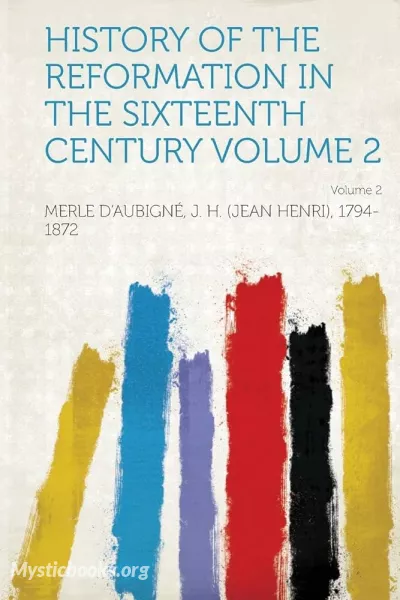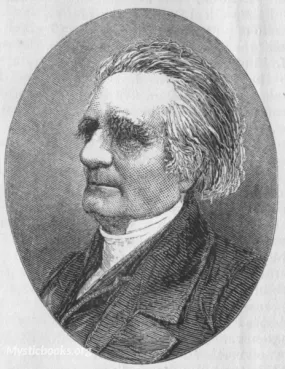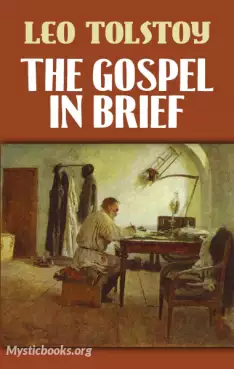
History of the Reformation in the Sixteenth Century, Volume 2
'History of the Reformation in the Sixteenth Century, Volume 2' Summary
In the second volume of his acclaimed history of the Reformation, Jean-Henri Merle d'Aubigné vividly recounts the dramatic events that unfolded as the Protestant movement spread throughout Europe. Covering the period from 1521 to 1536, d'Aubigné's narrative chronicles the rise and fall of key figures, the spread of new ideas, and the momentous political and religious changes that transformed the continent.
The volume opens with the Diet of Worms, where Martin Luther famously defied the Holy Roman Emperor and the Catholic Church. From there, d'Aubigné traces the spread of Lutheranism across Germany and into other parts of Europe. He also tells the story of Huldrych Zwingli, the Swiss reformer who led a separate but related Protestant movement.
In addition to the rise of new Protestant movements, Volume 2 also explores the Catholic Church's response to the Reformation. Pope Leo X launched a counter-reformation effort, aimed at suppressing the Protestant movement and restoring the authority of the Church. However, d'Aubigné argues that the counter-reformation only served to deepen the divisions within Christendom.
The volume also examines the political and social dimensions of the Reformation. D'Aubigné highlights the role of the printing press in spreading new ideas, as well as the impact of the Reformation on education, art, and literature. He also discusses the rise of the Peasant Wars in Germany, which were sparked by a combination of economic and religious grievances.
Throughout his narrative, d'Aubigné provides insightful portraits of the key figures of the Reformation. He paints vivid pictures of Luther, Zwingli, and other reformers, as well as their Catholic opponents. D'Aubigné also highlights the role of ordinary people in the Reformation, from the peasants who fought in the Peasant Wars to the women who supported the reformers and helped to spread their message.
Essence and Spirit of the Book
D'Aubigné's History of the Reformation is a classic work of scholarship that remains essential reading for anyone interested in this momentous period in history. Written in a clear and engaging style, the book provides a comprehensive and insightful account of the Reformation, from its theological roots to its political and social implications.
D'Aubigné's work is also notable for its sympathetic portrayal of the Reformers. Although he was a devout Protestant himself, d'Aubigné was able to see beyond the sectarian divisions of his time and appreciate the greatness of the reformers, even as he acknowledged their flaws.
Conclusion
D'Aubigné's History of the Reformation is a masterpiece of historical writing. It is a book that will both inform and inspire readers, regardless of their religious background. For those who seek to understand the Reformation and its impact on the world, d'Aubigné's work is an essential resource.
Book Details
Language
EnglishOriginal Language
EnglishPublished In
1846Genre/Category
Tags/Keywords
Authors

Jean-Henri Merle d'Aubigné
Switzerland
Jean-Henri Merle d'Aubigné (1794-1872) was a Swiss Protestant minister and historian of the Reformation. He is best known for his multi-volume work A History of the Reformation of the Sixteenth Centur...
Books by Jean-Henri Merle d'AubignéDownload eBooks
Listen/Download Audiobook
- Select Speed
Related books

Civitate Dei Libri XXII by Saint Augustine of Hippo
The City of God, written by Saint Augustine of Hippo in the 5th century AD, is a seminal work of Christian philosophy that responds to the accusations...

唐诗三百首 卷三 Three Hundred Tang Poems, Volume 3 by Various
Compiled around 1763, 'Three Hundred Tang Poems' is the standard collection of the poetic art of the Tang Dynasty (618 to 907). Poems in Volume Three...

Short Answers to Common Objections Against Religion by Louis Gaston de Segur
Delve into a thought-provoking exploration of faith and reason in "Short Answers to Common Objections Against Religion" by Louis Gaston de Ségur, wher...

Hurlbut's Story of the Bible Part 7 by Jesse Lyman Hurlbut
Some years ago, the editor of an English magazine sent a communication to "the hundred greatest men in Great Britain" asking them this question: "If f...

The Gospel In Brief by Leo Tolstoy
In this book, Tolstoy seeks to condense the four Gospels of the New Testament, Matthew, Mark, Luke and John, into one, by looking along the lines of t...

Book of Saints and Friendly Beasts by Abbie Farwell Brown
This charming collection celebrates the unique bonds between humans and animals as depicted in the lives of Christian saints. Abbie Farwell Brown weav...

Age of Elizabeth by Mandell Creighton
This book explores the reign of Queen Elizabeth I of England within the context of sixteenth-century European political, religious, and military event...

Birds and Nature, Vol. VIII, No 4, November 1900 by Various
This volume of "Birds and Nature" is a compilation of short poems, descriptions of birds, animals, and other natural subjects. Each piece is accompani...

Conciliatory or Irenical Animadversions on the Controversies Agitated in Britain under the Unhappy Names of Antinomians and Neonomians by Hermann Witsius
The Antinomian-Neonomian controversy of the 17th century was initiated by the republication of a set of sermons by Tobias Crisp entitled "Christ alone...

Bible (Reina Valera) NT 07: 1 Corintios by Reina-Valera
1 Corinthians is a letter written by the apostle Paul to the Christian community in Corinth, a city known for its moral complexities and cultural dive...
Reviews for History of the Reformation in the Sixteenth Century, Volume 2
No reviews posted or approved, yet...